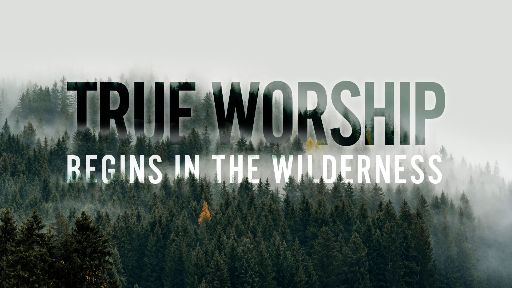-
The Envoy In The Wilderness.
Contributed by Christopher Holdsworth on Jan 7, 2024 (message contributor)
Summary: The testimony of John the Baptist pointing to Jesus.
THE ENVOY IN THE WILDERNESS.
John 1:6-8, John 1:19-28.
I). THE ENVOY.
John 1:6-8.
John the Evangelist has introduced the Word of God as the Creator (cf. John 1:1-3), and as the source of life and light (cf. John 1:4-5). This is all building up to a climax in the making flesh of the Word (cf. John 1:14), but for now we are introduced to the messenger who goes before Him to prepare the way (John 1:6-8). This is the man we call John the Baptist (cf. Matthew 3:1-3).
1. John the Baptist was commissioned by God Himself (John 1:6).
Just before Jesus began His public ministry, God sent John the Baptist to the River Jordan (cf. John 1:28). This was in fulfilment of Old Testament prophecy (cf. Malachi 3:1; Isaiah 40:3).
2. John the Baptist was a witness (John 1:7).
John preached the baptism of repentance (cf. Mark 1:4). The baptism administered by John signified a turning away from sin, and a turning toward God. For a while the people were content to submit themselves to the teaching of John, and crowds from all over Judah came down to the River Jordan to be baptised by him.
3. John the Baptist’s testimony was Christ-centred (John 1:7; cf. John 1:15).
John was astonished when Jesus came to the River Jordan to be baptised, and even tried to stop Him (cf. Matthew 3:14-15). Jesus did not have any personal sin to repent of, but His washing with water may have signified the ritual washing of a priest when he is first consecrated. Jesus was anointed when the Holy Spirit came upon Him in the form of a dove (cf. John 1:32). God the Father accepted the Person of Jesus with a voice from heaven (cf. Mark 1:11).
4. John the Baptist’s desire was to win people to faith in Jesus (John 1:7).
John pointed to Jesus as the One who takes away the sin of the world (cf. John 1:29). Again, he pointed two of his disciples to Jesus, the Lamb of God, and they left John and followed Jesus (cf. John 1:35-37).
5. John the Baptist pointed away from himself to Jesus (John 1:8; cf. John 1:29-31).
The people were so impressed with John, that they began to wonder if he was the Christ, the anointed Saviour promised long ago by God. John responded by pointing away from himself. This is what all true ministers of God will do: the message of the gospel is not about us; it is about Jesus!
John humbly acknowledged that he was unworthy even to stoop down and untie the sandals of Jesus (cf. John 1:27). John was a popular preacher. Yet John’s commission was to prepare the way for Jesus, not to seek honour for himself.
II). THE VOICE IN THE WILDERNESS.
John 1:19-28.
The witness of John is put on record (John 1:19) because the Council in Jerusalem sent a delegation to him, asking who he thought he was, preaching without licence (from them) out there in the wilderness. They surely knew he was a priest’s son, but they wondered whether he was perhaps setting himself up to be the long-awaited (and soon expected) Messiah? Anticipating their question, John emphatically denied that he was the Messiah (John 1:20).
Or was he “Elijah”? Or “the Prophet” spoken of by Moses? (John 1:21).
(i). John here denies that he is the Elijah of their common expectation because he was the forerunner NOT of a triumphant King who would deliver them from the Romans, BUT of the humble Servant who would die for the sins of His people. Nevertheless, Jesus speaks of John the Baptist as having come in the spirit of Elijah (cf. Matthew 17:10-13).
(ii). Moses spoke of a Prophet like himself, who was to come of the nation of Israel, and to whom they should hearken. This Prophet is not John, but Jesus (cf. John 12:49).
“Who are you?” (John 1:22a).
It would appear that the authorities were more concerned with the man - and what the man was doing, and how he was stepping on their collective ecclesiastical toes - than with the message that he preached. This interview appears to be more of an interrogation than an honest inquiry, and seemed to take on the sneering scorn of an Inquisition before it was over: “What do you say about yourself?” (John 1:22b).
“The voice of one crying in the wilderness, Make straight the way of the Lord, as said the prophet Esaias” (John 1:23).
John the Baptist thinks nothing of himself: just “the voice” of the crier who announces the approach of the King. When old-time sovereigns of England would make a ‘progress’ throughout their realm, messengers would be sent ahead to make sure the way was clear, potholes filled in, and accommodation made for a vast entourage. This also involved announcing the approach, so that nobody would be caught off guard.

 Sermon Central
Sermon Central



